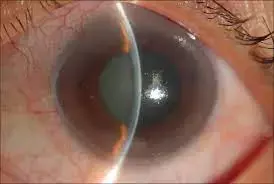- Home
- Medical news & Guidelines
- Anesthesiology
- Cardiology and CTVS
- Critical Care
- Dentistry
- Dermatology
- Diabetes and Endocrinology
- ENT
- Gastroenterology
- Medicine
- Nephrology
- Neurology
- Obstretics-Gynaecology
- Oncology
- Ophthalmology
- Orthopaedics
- Pediatrics-Neonatology
- Psychiatry
- Pulmonology
- Radiology
- Surgery
- Urology
- Laboratory Medicine
- Diet
- Nursing
- Paramedical
- Physiotherapy
- Health news
- Fact Check
- Bone Health Fact Check
- Brain Health Fact Check
- Cancer Related Fact Check
- Child Care Fact Check
- Dental and oral health fact check
- Diabetes and metabolic health fact check
- Diet and Nutrition Fact Check
- Eye and ENT Care Fact Check
- Fitness fact check
- Gut health fact check
- Heart health fact check
- Kidney health fact check
- Medical education fact check
- Men's health fact check
- Respiratory fact check
- Skin and hair care fact check
- Vaccine and Immunization fact check
- Women's health fact check
- AYUSH
- State News
- Andaman and Nicobar Islands
- Andhra Pradesh
- Arunachal Pradesh
- Assam
- Bihar
- Chandigarh
- Chattisgarh
- Dadra and Nagar Haveli
- Daman and Diu
- Delhi
- Goa
- Gujarat
- Haryana
- Himachal Pradesh
- Jammu & Kashmir
- Jharkhand
- Karnataka
- Kerala
- Ladakh
- Lakshadweep
- Madhya Pradesh
- Maharashtra
- Manipur
- Meghalaya
- Mizoram
- Nagaland
- Odisha
- Puducherry
- Punjab
- Rajasthan
- Sikkim
- Tamil Nadu
- Telangana
- Tripura
- Uttar Pradesh
- Uttrakhand
- West Bengal
- Medical Education
- Industry
Cataract patients with uveitis may develop uveitis flare and cystoid macular oedema after surgery

Cataract patients with uveitis may develop uveitis flare and cystoid macular oedema after surgery according to a recent study published in the
A study was done to determine the outcomes of cataract surgery in eyes with uveitis, including the rates of intra-operative and post-operative complications and predictors of visual outcomes.
It is a retrospective observational cohort study. It was conducted in a tertiary public hospital setting in Auckland, New Zealand, between 2008 and 2020. They selected subjects who underwent cataract surgery following a diagnosis of uveitis. The major study outcomes were additional intra-operative procedures; intra-operative and post-operative complications; postoperative visual outcomes and complications.
Results:
- 471 eyes of 371 subjects were included. The median duration of uveitis prior to cataract surgery was 3.0 years and the median period of quiescence prior to surgery was 1.0 years
- Additional procedures (posterior synechiae peel (32.3%), vision blue (18.1%)) were common. Intra-operative complications occurred in 32 eyes (6.8%).
- Consultants were the primary surgeons in the majority (82.5%) of operations.
- By 12 months, visual acuity was 20/50 or better in 248 eyes (79.7%).
- The most common post-operative complication was uveitis flare, occurring in 56.5%.
- On Cox proportional hazards analysis, time quiescent was associated with reduced risk of flare
- Post-operative cystoid macular edema (CME) developed in 45 eyes (9.6%), with no significant predictors identified on multivariate analysis.
Thus, cataract surgery in uveitis is complex. In the hands of the surgically experienced, rates of intra-operative complications are low. The primary challenge is managing post-operative care as we report a high rate of uveitis relapse and CME. Careful monitoring is important as complications can be unpredictable and occur later than expected.
Reference:
Haya Husam Al-Ani, Joanne Lesley Sims, Rachael Louise Niederer. Cataract Surgery in Uveitis: Risk Factors, Outcomes and Complications. American Journal of Ophthalmology. Published: August 20, 2022 DOI: https://doi.org/10.1016/j.ajo.2022.08.014
Keywords:
Cataract, patients, uveitis, develop, uveitis, flare, cystoid, macular, edema, surgery, American Journal of Ophthalmology, Haya Husam Al-Ani, Joanne Lesley Sims, Rachael Louise Niederer
Dr. Shravani Dali has completed her BDS from Pravara institute of medical sciences, loni. Following which she extensively worked in the healthcare sector for 2+ years. She has been actively involved in writing blogs in field of health and wellness. Currently she is pursuing her Masters of public health-health administration from Tata institute of social sciences. She can be contacted at editorial@medicaldialogues.in.
Dr Kamal Kant Kohli-MBBS, DTCD- a chest specialist with more than 30 years of practice and a flair for writing clinical articles, Dr Kamal Kant Kohli joined Medical Dialogues as a Chief Editor of Medical News. Besides writing articles, as an editor, he proofreads and verifies all the medical content published on Medical Dialogues including those coming from journals, studies,medical conferences,guidelines etc. Email: drkohli@medicaldialogues.in. Contact no. 011-43720751


